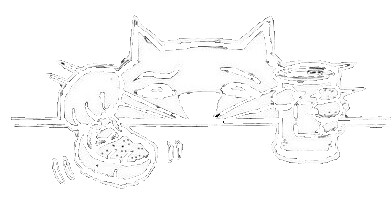Speed Stick
The Carrboro, NC supergroup Speed Stick is an ever-evolving project among a group of friends—Ash Bowie (Polvo), Charles Chace (The Paul Swest), Laura King (Bat Fangs), and Thomas Simpson (The Love Language)—whose musical achievements reach back as far as the 1990s. But as its live shows attest, the band does not want to rehearse old accomplishments. On stage, Speed Stick wants to shatter epochs. Step into a world of thunder where lighting strikes rewire nervous systems. Ride waves with peaks that precede disquieting calms. Float in spaces where dark and light collide to set blood afire. To participate in a Speed Stick show is to enter a space of bodily and psychological endurance. Off-kilter guitar riffs shadow the raging intensity of drums; blistering drum beats dance to the feedback of guitars.The songs for Volume One were created in unusual fashion over the course of a year. Initially, Speed Stick only consisted of two drummers. They distributed nine studio tracks and a single live track to select musicians. The musicians’ task was simple: draw inspiration from the beats in order to create music that spreads laterally and horizontally like a rhizome. Indeed, Volume One has utterly discarded the yoke of genre by instead tethering intricate, interlocking drums to myriad creative personalities: Mac McCaughan (Superchunk), Kelley Deal (The Breeders, R. Ring), Mike Montgomery (R. Ring), Stuart McLamb (The Love Language). But no one can stop with just the album. Your ears will yearn to see the shapes of sound and your eyes will beg to taste color. For what Volume One heralds is that the supergroup Speed Stick is the super show of shows.Bandcamp | Facebook
Lemon Sparks, Brett Harris
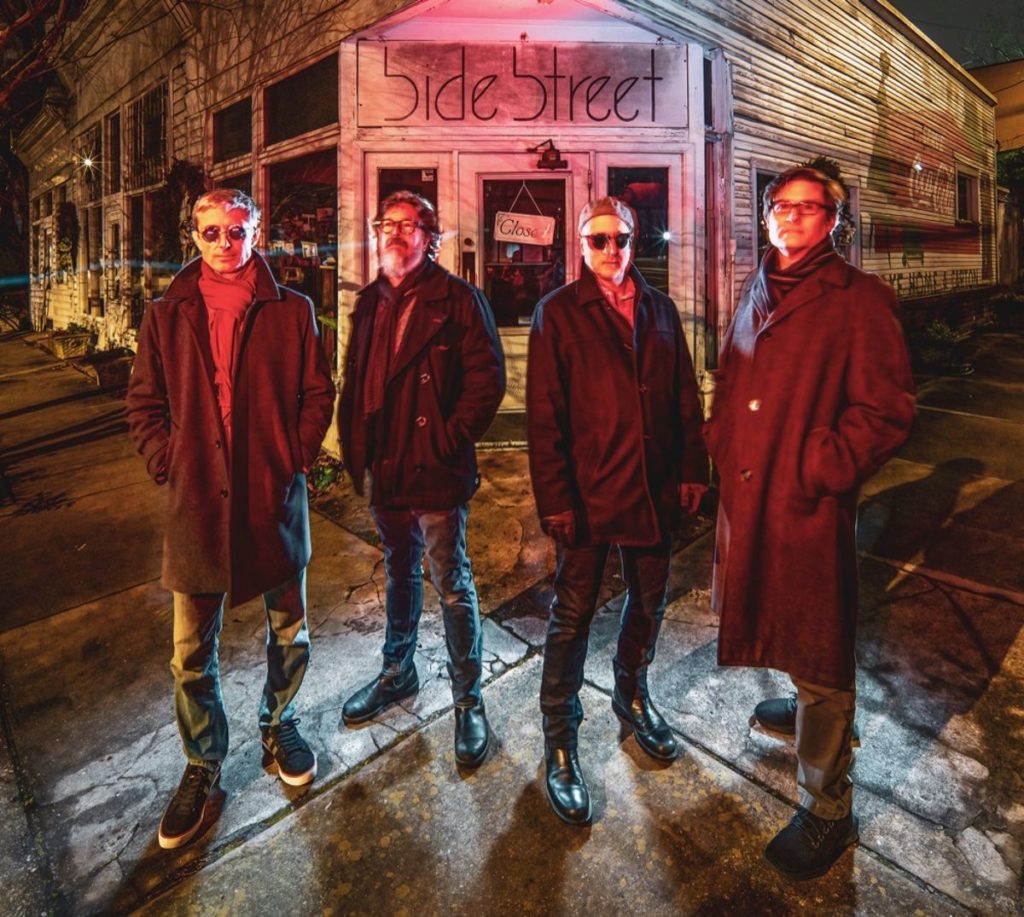
Hailing from Raleigh, North Carolina, Lemon Sparks is an original ‘roots pop’ band blending sophisticated psychedelia, power pop, timeless folk, and jazz. The band supported the release of their 2015 self-titled debut touring clubs and regional festivals, headlining locally and opening for international acts.Lemon Sparks proudly present their new album Raincloud In the Sun. Band members Jeff Carroll (guitar) Rick Lassiter (bass) and Greg Tourian (drums) pulled double duty providing a variety of instrumentation and production on each of Raincloud in the Sun’s ten original songs.Guest musicians on the album include Peter Holsapple (dBs, REM, Continental Drifters), Todd Montgomery (Big Chief), and Don Kerr (Ron Sexsmith, Rheostatics, Bahamas).Lemon Sparks’ winsome, sturdy songs build upon a rich balance of melody and dissonance. The band skillfully glides across multiple golden eras of guitar pop with masterful playing and considerable attention to sonic detail.Website | Facebook | YouTubeBrett Harris is a singer, songwriter, and multi-instrumentalist from Durham, NC. In 2010 his debut LP Man of Few Words was featured by Paste Magazine’s “Best of What’s Next”, NPR’s “All Songs Considered: Second Stage”, and made several “Best of” lists, drawing comparisons to the work of Nick Lowe, Elvis Costello, Harry Nilsson, and Emitt Rhodes. Additionally, Brett has participated as a core band member in live performances of Big Star’s Third, playing throughout the US in addition to the UK, Spain, and Australia. He has also served as a touring member of Jangle Pop progenitors The dB’s. Noted critic Bill Kopp, in a review of his 2016 release Up in the Air, said the album “will have lovers of classic pop reaching for the ‘repeat’ button.”Website | Twitter | Facebook | Spotify | YouTube | Soundcloud
The Mountain Goats
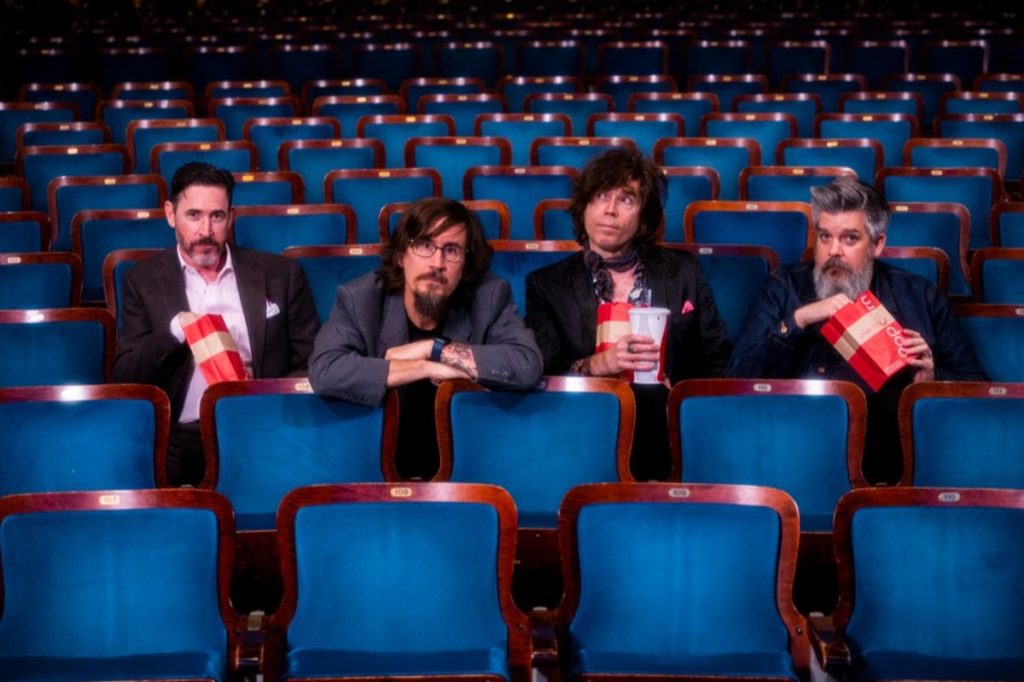
Maybe you are just like John Darnielle: In the depths of the pandemic winter at the end of 2020, the Mountain Goats frontman passed the time trapped at home in North Carolina watching pulpy action movies, finding comfort in familiar tropes and sofabound escapism. But you are not really like John Darnielle, unless the action movies you found comfort in included French thrillers like 2008’s Mesrine, vintage Italian poliziotteschi, or the 1974 Donald Pleasence mad-scientist vehicle The Freakmaker. Or unless watching them brought you back to your formative days as an artist, when watching films fueled and soundtracked your songwriting jags and bare-bones home recordings and in turn inspired your 20th album to be a song cycle about the allure—and futility—of vengeance. But there’s no shame in not being like John Darnielle; few people are.“On earlier tapes you’ll find these sound samples,” Darnielle says. “‘Oh, where’s this sample from?’ It’s from whatever movie I was watching while I was sitting around on the couch with a guitar. I watch a movie, somebody’d say something that I like the sound of and I’ll write that phrase down. And then I would pause the VHS, write the song, record the song on a boombox, and go back to watching my movie. I got into doing that again; I just kept watching action movies and taking notes on what they’re about and on what the governing plots and tropes and styles are. It was very much like an immersion method acting technique.”The resulting performance is Bleed Out, a cinematic experience unto itself. One song about preparing to exact bloody revenge begat another song about the act of exacting bloody revenge and then more songs about and the causes and the aftermath of being driven to exact bloody revenge, each delivered with the urgency and desperation deserving of their narrators and circumstances.Just as Getting Into Knives and Dark in Here—recorded in Memphis and Muscle Shoals, respectively, in the first two weeks of March 2020, just before such a thing would become impossible—were heavily informed and influenced by their historic settings, Bleed Out is all pent-up energy and explosion, executed by a bunch of friends who were mainly happy to be in a room together making loud noises. In January 2021, just weeks after Darnielle had started writing, his bandmates Peter Hughes, Matt Douglas, and Jon Wurster joined him at a studio in the woods near his home in Chapel Hill. Everything was finished inside a week.“We often make a record and then bring in some guests who flesh out the textures,” Darnielle says. “And for this one, it was very much like a pack mentality. That sort of seemed to proceed from the songs.” One new face was that of Bully’s Alicia Bognanno, recommended to Darnielle by his manager as a producer who could help nurture the rougher-edged sound these songs requested. “We met up and hit it off. She’s a great guitarist. It was kind of just a lark, to see what would happen, and it was totally great.”That abandon is on full display from the opening track, “Training Montage,” which lovingly documents the getting-ready-for-battle scene in any action movie regardless of provenance and loudly declares its intentions: “I’m doing this for revenge.” This and the next song, “Mark on You,” were the first two Darnielle wrote, and they set the tone for everything that follows on Bleed Out.Website | Instagram | Twitter | Facebook | YouTube
Colby Acuff
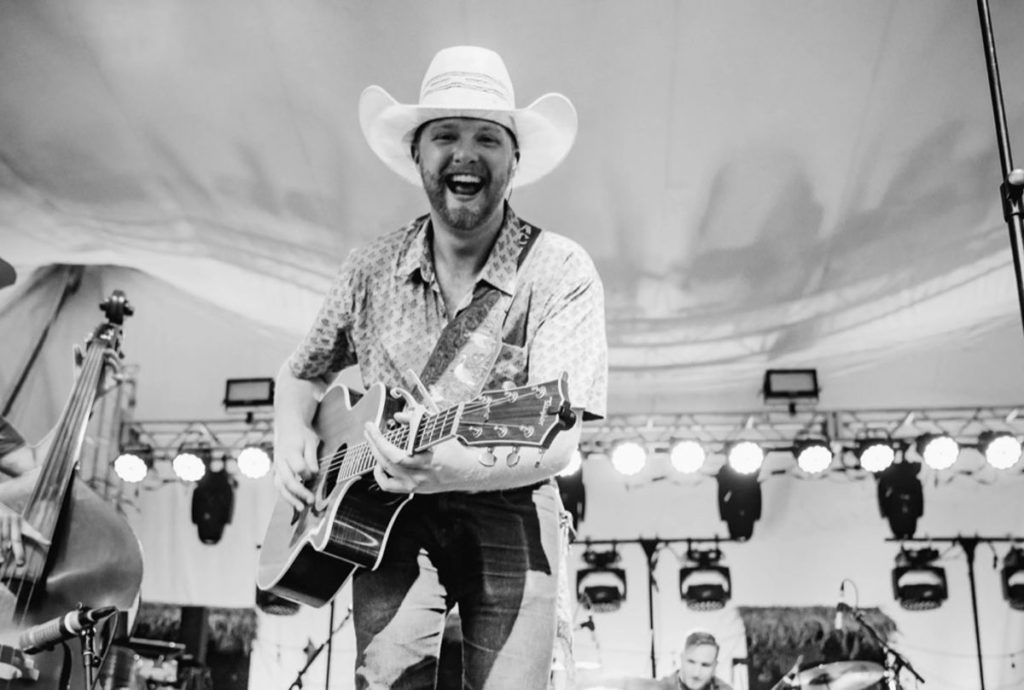
Brought to you from the mountains of North Idaho is an independent country artist with an old soul. Acuff’s blend of old-school storytelling and powerful voice takes you to an unfamiliar place of honest country music. Acuff grew up listening to country music of all kinds. From bluegrass to outlaw country. His inspirations from a young age were Hank Williams, Waylon Jennings, Merle Haggard, Johnny Cash, Ricky Skaggs, and many more.Acuff had drawn inspiration for his songs throughout his life, songs like “Moscow Drinking Team” talks about the days when he was attending the University of Idaho, as well as “Dying Breed” which conveys his life when he was a fly fishing guide on the Coeur d’ Alene river.Acuff dropped “Life of a Rolling Stone” in January of 2020 but everything got put on hold due to COVID-19. he had lost everything, but instead of giving up he doubled down on his dream and one year later he dropped his independent sophomore album “If I were the Devil” which put him on the map. In the first 6 months, the album has done over 6 million total streams and has been featured on over 50 media outlets including Whiskey Riff, and CMT.Website | Instagram | Twitter | Facebook | YouTube
Jervis Campbell
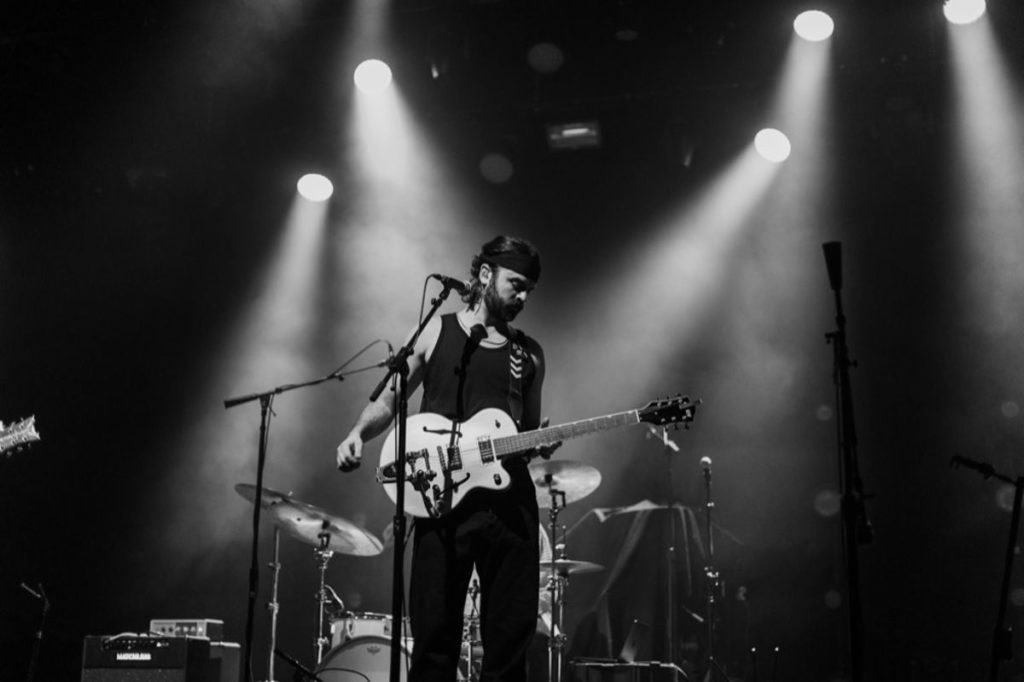
Jervis Campbell is a Nashville based artist known for his introspective lyrics, signature vocals, and unique production – all packaged into intimate and authentic songs that he has played across the country. With only one album and an EP out he has found a strong following in both the physical and digital world. So far he has amassed over 70 million streams on streaming platforms and that number continues to grow.In November 2021, Campbell released the self-written “Onward & Upward” – his debut full-length album packed with the lyrical and emotional depth of a life that has learned through experience and come out the other side. “I wanted to push myself and try to make this album as authentic as I could so I made these songs to come to life by my own hands” says Campbell, who produced the whole record on his own in his home studio.With the success and reception of “Onward & Upward”, Campbell has started moving forward with his next album, called the “Hopeful Hearts Club”. It will be released as singles monthly throughout 2023 and he will be touring with his band on his “Hopeful Hearts Tour”. The band will be playing songs from his past record as well as the new ones from this one. “ I was in a dry season of life for a long time and felt like there was no way out – slowly but surely though I started to feel this sliver of hope and realized how important it was to me. I started writing again and realized that all of my songs were about hope. I guess a little bit of hope can go a long way.”With the Hopeful Hearts Tour ahead as well as his sophomore album, there is a lot of excitement from fans around the country. The spring holds 20 shows up the East Coast, around the Midwest, and down through Texas. He will have his full band and they will be playing the full show with lights and full production. The momentum is in full swing and things seem to only look brighter from here.Website | Facebook | Spotify | YouTube
Duck

In 2016, 3 friends started playing weekend jam sessions togetherAnd Duck was formed, with word spreading quickly about this new Raleigh, NC based band.As the word spread about this funky, soulful, bluesy band, inevitably those sessions transferred into writing music and playing house parties. And Duck began booking gigs at venues around North Carolina while sharing their passion for making crowds boogie to their upbeat and funky sound.In 2021, with the addition of Donnie Tyree on vocals, Duck has found their groove both performing and writing originals with a solid assembly of talent: Donnie Tyree on vocals, Mike Swartz on guitar, Chuck Rhew on keys, Chris Holloway on bass and Fred Dees on drums and electric washboard.All band members participate in writing music and lyrics. Their most recent album, Live at Lincoln Theatre, recorded in Raleigh, NC summer of 2021, can be found on all streaming services.Website | Instagram | Facebook | Spotify | YouTube
The New Pornographers
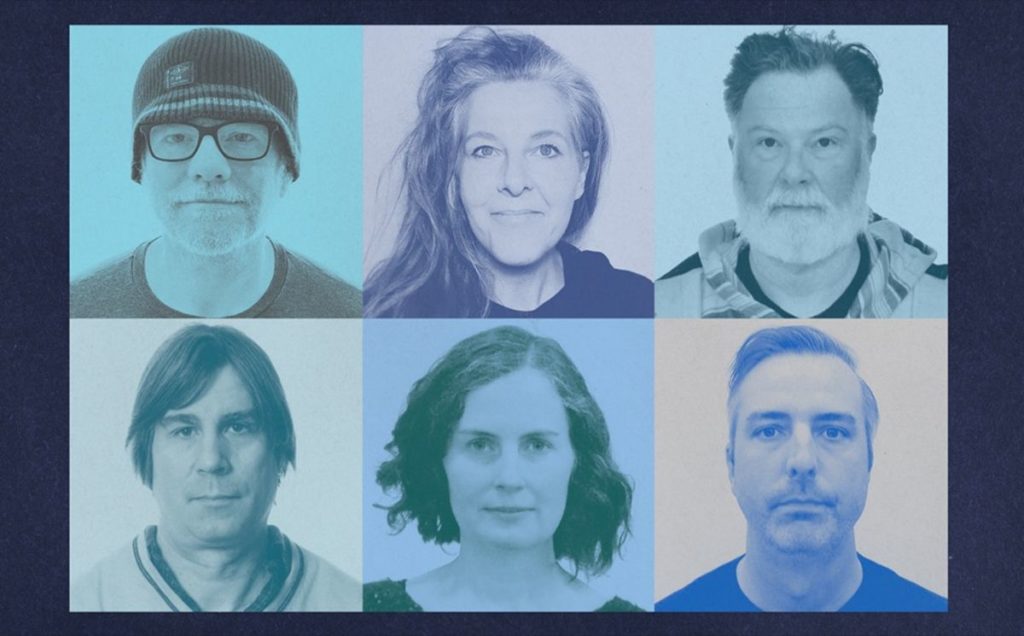
Over the past 20 years, The New Pornographers have proven themselves one of the most excellent bands in indie rock. They’ve constantly offered new sonic surprises with every album, and ‘Continue as a Guest’ is their greatest leap to date. The group’s ninth album and first for Merge establishes them alongside modern luminaries like Yo La Tengo and Superchunk when it comes to their ability to evolve while still retaining what made them so special in the first place. A dazzling and intriguing collection of songs that are truly built to last, ‘Continue as a Guest’ finds bandleader A.C. Newman and his compatriots Neko Case, Kathryn Calder, John Collins, Todd Fancey, and Joe Seiders exploring fresh territory and shattering the barriers of their collective comfort zone. The critically acclaimed supergroup will be touring in support of the new record while also playing a plethora of favorite tunes from across their expansive catalog.Website | Facebook | Instagram | Twitter | YouTube | Spotify
Bob Marley Birthday Bash

“One good thing about music, when it hits, you feel no pain!” – Bob MarleyThe 23rd Annual Bob Marley Birthday Bash returns with Mickey Mills & Steel, Jamrock, Zion Project and DJ Ras J. Celebrate the music and message of reggae superstar Bob Marley and bask in the positive energy and natural healing power of live reggae music. Jamaican food and local vendors will also be on hand for this uplifting show, produced by Steel Productions.☆ Mickey Mills & SteelA pioneer of the reggae scene in North Carolina for decades, Mickey Mills is a talented singer, keyboardist, and songwriter once called “the fastest steel drum soloist on earth.” Born and raised in Trinidad, he first started playing steel drums at the age of 12. During his long career, he has worked with legendary artists such as The Rolling Stones, Johnny Mathis, and Mighty Sparrow. He has performed in the off-Broadway show “House of Flowers,” on the television show Matlock on NBC, and is no stranger to such prestigious venues as The Village Gate and Madison Square Garden. Mickey, who cites Bob Marley as one of his major influences, also works in schools conducting workshops with young people across the country as a music educator with his “Island In The Sun” and “Steel-o-Rama” cultural programs. Facebook☆ Jamrock Reggae BandFounded in 1995, this energetic band is a Bob Marley Birthday Bash regular, and one of the most active reggae groups in North Carolina. The success of the group can be attributed to their sound, which reflects the true style of how reggae music is played back in Jamaica. With a strong emphasis on entertainment and musicianship, Jamrock has shared the stage with the top names in reggae including Keith Poppin, the Meditations, Donovan Carless, and more. Catch them every summer at the Cary Starlight series!Facebook☆ Zion ProjectCovering a vast expanse of musical knowledge reaching from Seattle to Washington, DC, the Zion Project has shared the stage with such reggae royalty as Toots and the Maytals, The Wailers, The Abyssinians, and The Itals. Based in Asheville, NC, the Zion Project was formed through the collective consciousness of Rastafari, combining roots rhythms with soul and jazz influences and an uplifting message. Over the years, the Zion Project has developed a unique style of heavy roots, harmonized vocals, and upbeat songs, bursting with energy.☆ DJ Ras JWith over 25 years on the decks and a deep collection of rare Jamaican 45s, Ras J has opened for reggae legends such as Lee Scratch Perry, Toots & the Maytals, Black Uhuru, The Wailers, Capleton, and Buju Banton and performed at music festivals up and down the east coast. Starting his career on college radio at WECS in 1989, he later worked as a roadie for dancehall icon Super Cat, and as a concert promoter in NYC. His live dub mixes and creative, high-energy vinyl sets explore the boundaries and connections of reggae music and beyond. Facebook Instagram Twitter Soundcloud
Jon Shain & FJ Ventre
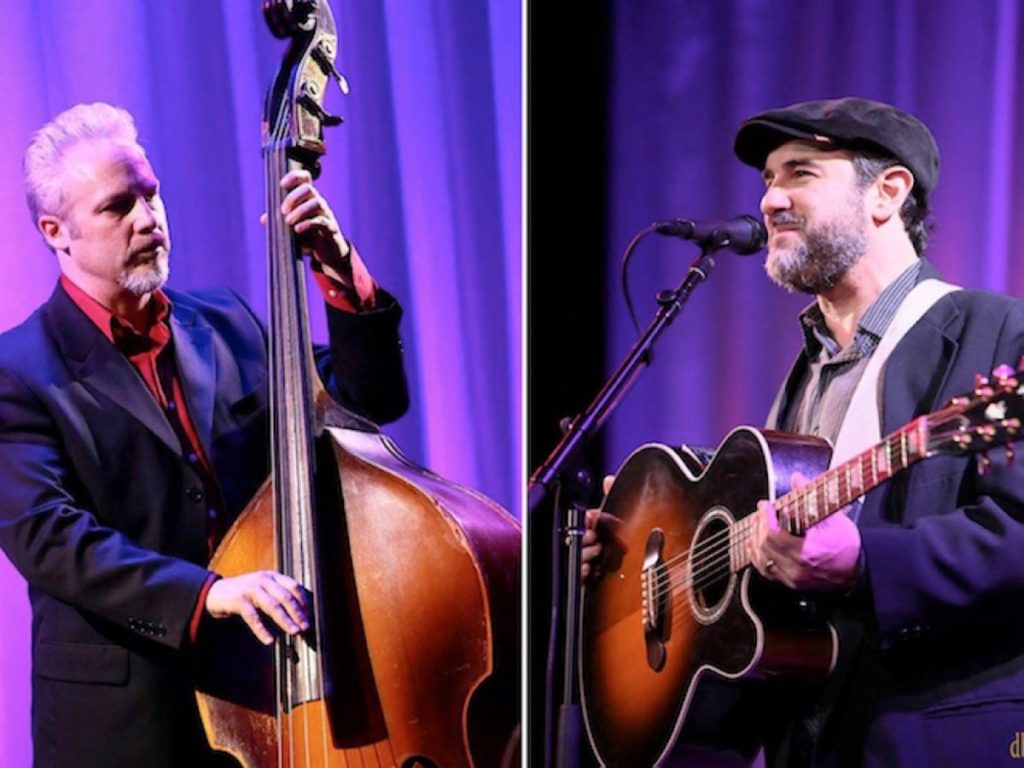
Jon Shain is a veteran singer-songwriter who’s been turning heads for years with his words and his fiery acoustic guitar work, and his evolved musical style – combining improvised piedmont blues with bluegrass, swing, and ragtime. Shain had the good fortune to learn directly from a number of North Carolina’s older blues players, and became a member of Big Boy Henry’s backing band. He is the 2019 winner of the International Blues Challenge in the solo/duo category. In addition, Shain was a finalist (along with FJ Ventre) in the 2009 International Blues Challenge, he won both the 2008 and 2018 Triangle Blues Society’s Blues Challenge and was the 2006 winner of NC’s Indy award for Best Folk Act. Shain’s most recent solo disc, Gettin’ Handy with the Blues: A Tribute to the Legacy of WC Handy, was released in January, 2018. Shain’s newest album, Never Found A Way to Tame the Blues, recorded along with long-time collaborator FJ Ventre was released in July.FJ Ventre and Jon began playing music together in 1982 when they met in high school. FJ went on to University of Massachusetts-Lowell, earning a B.A. in Music Performance and Sound Recording. He remained in the Boston area, performing in the city’s vibrant music scene. Since relocating to Chapel Hill, NC in 2000, Ventre has performed with his own group The Swang Brothers, as well as most of the Triangle’s roots acts. In addition to performing as a sought-after sideman, he spends his time behind the mixing board, engineering at his own Good Luck Studio. With Jon, they have become sought-after producers in the folk/Americana genre, producing several charting Folk and Blues albums in the last few years. https://jonshain.com/jon-shain-and-fj-ventre/
Futurebirds
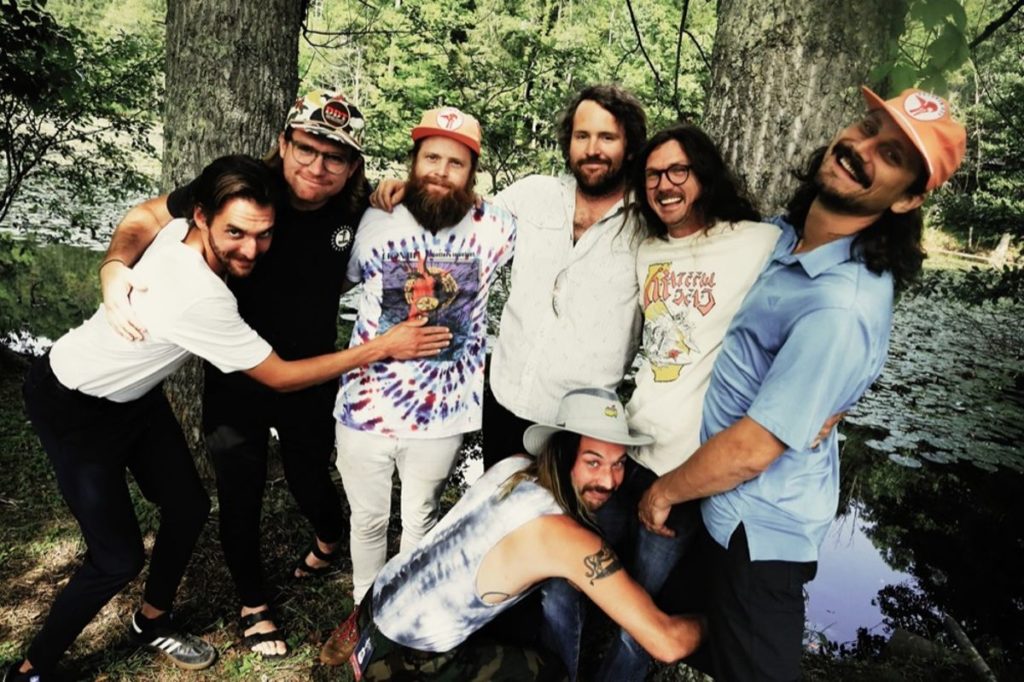
Rock juggernaut Futurebirds’ newest EP, Bloomin’ Too, is a benchmark that not only celebrates 13 years together, it’s also a testament to the sheer iron will of a group of musicians hungry for the fruits of its labor.“Futurebirds is the best it’s been right now, far and away,” says singer/guitarist Carter King. “We’ve been unintentionally carving out our own space since the beginning, since we never exactly fit in anywhere else musically. We were always too indie rock for the jam festival, too country for the indie scene, a little too psych-rock to feel like we were Americana. The music over the years just kind of created its own weird little ecosystem — it’s thriving and it feels great.”The Athens, Georgia-based group once again tapped storied My Morning Jacket guitarist/producer Carl Broemel in the latest chapter of this seamless, bountiful partnership that initially came to fruition with the 2021 EP, Bloomin’.“Carl is extremely perceptive and an all-around smart dude. He’s really in tune with what the band is and what it strives to be. He’s engaged and understands our vision,” King says. “He’s a longtime hero of ours, and now is a friend and collaborator. It’s wild. And it’s great to be able to defer to someone you respect so much with creative decisions in the studio — we don’t just give that trust to just anybody.”Captured this past spring at the legendary Ronnie’s Place in Nashville, Tennessee, the seven-song Bloomin’ Too is a vortex of sonic textures. The album ricochets from cosmic space, rock to rough around the edges, alt-country dreamscapes, sandy beach bum odes to kick in your step pop ballads — all signature tones and musical avenues at the core of the Birds’ wide musical palette.“This is probably the quickest turnaround we’ve ever had for a record — we felt confident right when we got into the studio and just cranked it out,” says singer/guitarist Daniel Womack. “All of our frequencies are aligned as a band, where we’ve got this free-flow of ideas happening. We’re all on the same page right now and we have a lot of momentum going.”For Broemel, he finds a sincere kinship and solidarity with Futurebirds. Witnessing first-hand the band’s blue-collar work ethic in the studio, Broemel was impressed and inspired by the ‘Birds’ democratic ways and means in how music is created and cultivated in the studio.“Futurebirds have this unique vibe with three singer-songwriters in the band, where everyone is constantly shifting their function depending on the song,” Broemel says. “Everyone just kind of falls into place and finds something to contribute. Someone will lead the charge on one song, then fall back and let another take charge on the next — it’s something rare to see and behold in rock music, where normally there’s just one songwriter and one leader.”That camaraderie between founding members King, Womack, singer/guitarist Thomas Johnson and bassist Brannen Miles began when they were college students at the University of Georgia. In recent years, the quartet has added pedal steel player Kiffy Myers, keyboardist Spencer Thomas and drummer Tom Myers.Website | Instagram | Facebook

